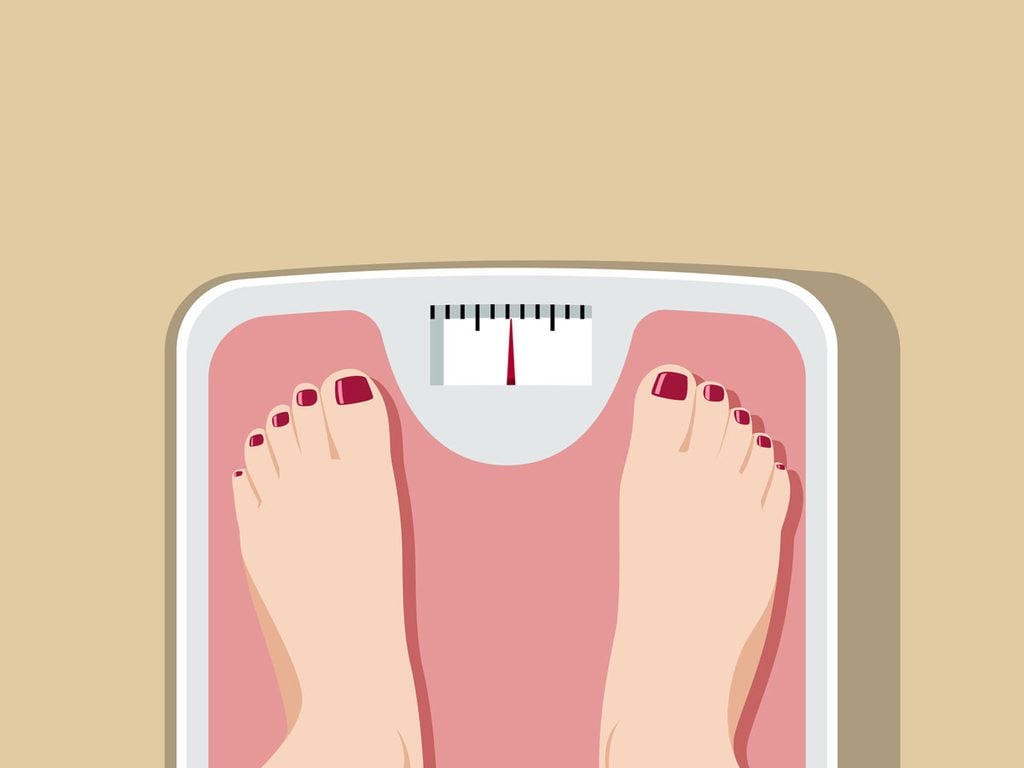Why Low-Carb Diets Aren’t the Answer

Eating a low-carb diet might move the needle on the scale, but there are plenty of reasons it's not the healthiest way to lose weight.
What raises blood sugar? The simple answer is carbohydrates. So why not just yank them out of your diet like weeds in your garden? Why not quash blood sugar by swearing off bread, pasta, rice, and cereal? Well for one, carbohydrates are the main source of body fuel and include some of the healthiest food you can eat. So it’s a bit more complicated than that.
When low-carb diets first became popular, they seemed to be a breath of fresh air after the low-fat (and high-carb) diets that preceded them. Remember low-fat cookies, low-fat snack cakes, and low-fat everything else? With low-carb diets, suddenly people could load up on bacon and still lose weight as long as they were willing to eat hamburgers without buns and pretty much give up sandwiches and spaghetti. These diets could be effective. Weight loss could happen very quickly, sometimes within days. And it often seemed to come with added health benefits, including lower cholesterol, blood pressure, and triglycerides (blood fats linked to heart attacks.)
One of the most extreme kind of low-carb diet was pioneered by the late Robert Atkins, MD, whose first book, Dr. Atkins’ Diet Revolution, came out in 1972. It promised quick and long-lasting weight loss and prevention of chronic disease, all while allowing high-fat steak and ice cream. Since then, other low-carb diets have allowed small amounts of carbohydrate-rich foods, but they still cut out most grains as well as starchy vegetables and even fruit.
The downsides of these diets
The Atkins diet—and the many other low-carb diets that followed in its footsteps—have turned out to be less effective than originally claimed. For instance, a 2018 study found that study participants lost the same amount of weight on low fat vs. low carb diets. Also, in the end, many people decided they didn’t want to go through life without ever eating pasta again. Let’s look at what would happen if you followed one of the more extreme low-carb diets.
You may feel terrible
Low-carb diets usually begin with an “induction” phase that eliminates nearly every source of carbohydrate. Often, you’ll consume as few as 20 grams of carbohydrate a day. That’s less than 100 calories’ worth—about what’s in a small dinner roll. On a 1,200-calorie diet, that’s only about 8 percent of your daily calories. By contrast, health experts recommend that we get between 45 and 65 percent of our calories from carbs.
When carbohydrate consumption falls below 100 grams, the body usually responds by burning glycogen (stored glucose) in muscle tissue. When those glycogen stores start to run out, the body resorts to burning body fat. But that’s a very inefficient, complicated way to produce blood sugar. The body tries to do it only when it absolutely has to (such as when it’s starving)—and for good reason.
Turning fat into blood sugar comes at a price in the form of by-products called ketones. They make your breath smell funny and can cause constipation, among other unpleasant side effects, according to the Mayo Clinic. They can also make you tired, lightheaded, headachy, and nauseated. Feeling lousy is certainly one way to dampen the appetite, but not one that most people would choose. “I see a lot of people not drinking enough water or electrolytes in the induction phase which results in the ‘keto flu,'” says L.J. Amaral MS, RD, CSO, clinical and research dietitian at Cedars Sinai Medical Center in Los Angeles. “Some people feel the ‘keto flu’ intensely because they do a night and day shift with their eating. That is discouraging to feel so poorly for a few days, so people will stop right after that.”
With virtually no carbs in your system, you may even have trouble concentrating. According to the Institute of Medicine of the National Academy of Sciences, the human brain requires the equivalent of 130 grams of carbohydrate a day to function optimally—and that’s a minimum.
Your health may suffer
If you’re overweight or obese, and you have insulin resistance—and especially if you have prediabetes or type 2 diabetes—cutting way back on carbohydrates can have immediate health benefits. Your blood sugar and insulin levels will go down, your triglycerides and blood pressure may fall, and your levels of good HDL cholesterol may rise.
But the low-carb diet will also wreak some havoc. Eventually, your body needs to breakdown a mix of fat and muscle to fuel your energy needs. Losing body muscle results in a decrease in metabolism because muscle tissue burns up a lot of calories. This may be one reason that the weight often comes back after you’ve been shunning carbs for a while.
But it could impact your cardiovascular system, according to the Harvard Medical School’s review of the research. If you switch to a high-saturated-fat diet, as people do when they start eating their fill of steak and bacon, your “bad” LDL cholesterol could go up. Levels of homocysteine, an amino acid that increases the risk of heart disease, may also rise if you eat a lot of meat and too few vegetables. A low-carb diet may also increase your risk of kidney stones and other kidney diseases, according to a review of the research in the Journal of Renal Nutrition.
You’ll miss out
It’s not just that you’ll feel deprived because you’ve had to give up bread, fruit, and all the rest. According to the Mayo Clinic, your body will also be deprived of foods and nutrients that are essential for good health, including the following:
Whole grains
These protect against metabolic syndrome, type 2 diabetes, heart disease, stroke, and cancer.
Fruits and vegetables
Produce helps prevent heart disease, stroke, and some cancers. Most fruits and vegetables are very filling while providing few calories, so they can help you cut calories without deprivation. Indeed, the more fruits and vegetables people eat, studies show, the thinner they tend to be.
Beans
Rich in protein, complex carbohydrates, and B vitamins, beans have no saturated fat and lots of soluble fibre. They also contain plant chemicals that protect against heart disease and cancer.
Low-fat dairy foods
Sure, you can have butter and cream on a carb-restricted diet, but you won’t get much calcium or protein from them. Fat-free and low-fat versions of milk and yogurt are excellent sources of those nutrients.
Fibre
Beans and many fruits and vegetables are particularly rich in soluble fibre, which helps lower blood sugar, curb hunger, and lower LDL cholesterol. (Try starting your morning with this high-fibre Apple and Walnut Muesli.)
Vitamins, minerals, and health-protective plant chemicals
Whole grains, for example, are rich in components such as lignans, which may protect against type 2 diabetes independently of their effects on blood sugar. And without fruits and vegetables, you’d be awfully hard-pressed to get enough vitamin C or other disease-fighting antioxidants.
You’ll eat too much “bad” fat
The original Atkins diet became popular largely because it allowed people to eat foods forbidden on most other diets, such as cheeseburgers (without buns). More recently, the diet has been revised to include sources of healthier fats, such as fish and olive oil, and other low-carb diets have shied away from saturated fats as well. But in practice, once you stop eating bread, fruit, and beans, it’s all too easy to eat too many fatty animal foods. After all, how many foods can you take out of your diet?
If you load up on saturated fats—the original Atkins diet got as much as 26 percent of its calories from saturated fat versus the 10 percent or fewer experts recommend—it can impact your health. Saturated fats are still the major culprit behind elevated LDL cholesterol. The latest revisions to the diet, to be fair, do emphasize lean poultry and seafood, but in practice, what attracts people to this diet is the bacon and butter.
Take the good, leave the bad
The good news? Many of the weight-loss advantages of low-carb diets may have nothing at all to do with restricting carbohydrates. The main benefit may be due to the extra protein—and you can add protein to your diet even if you don’t drastically cut carbs. Protein-rich foods may help with weight control. One reason may be that protein stimulates the body to burn slightly more calories than carbohydrates or fats do.
The main reason, though, is that protein foods curb hunger better. When people eat protein-rich foods, they feel fuller longer, and when they diet, they consume fewer calories and lose more weight when they eat a lot of protein. One 2017 study in Obesity Facts found that participants who followed a high-protein diet lost more weight than those who followed a standard-protein diet.
More protein, and carbohydrates in moderation
No matter how you slice it, most people eat too many calories, and most of those extra calories come from processed carbs (think: chips and cookies!). Thus, it makes sense to cut back on those and choose lower-glycemic index carbohydrate foods instead of “fast-acting” carbs that may send your blood sugar soaring.
That way, you’ll get the benefits of a low-carb diet with none of the hazards. You’ll get the blood sugar advantages, including lower insulin levels. By eating plenty of lean protein, you’ll feel satisfied and less hungry. And by choosing “good” fats and limiting “bad” ones, you’ll keep LDL cholesterol from rising and protect your heart in the process. You’ll also discover a way of eating that you can enjoy—rather than endure—for the rest of your life.
Medically reviewed by Maureen Namkoong, MS, RD.
If you’re still looking for the right diet, you might want to consider looking into the perfect diet based on your body type.




